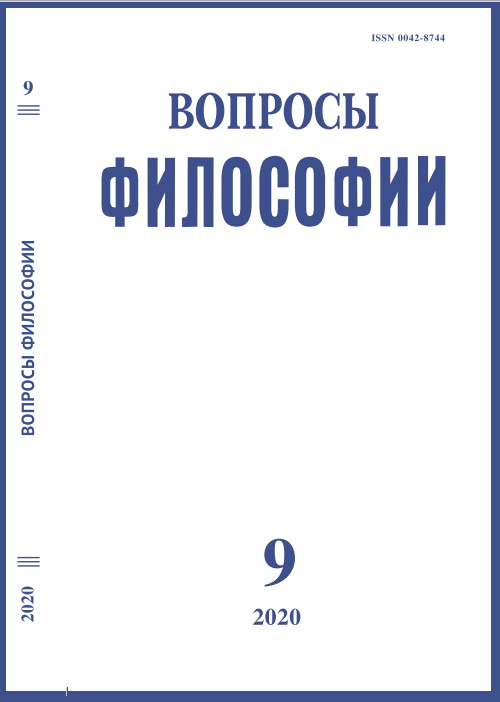What Does It Mean, to Take the Words Out of One’s Mouth? Kierkegaard’s Perusal of Feuerbach
DOI:
https://doi.org/10.21146/0042-8744-2020-9-190-201Keywords:
objectivity, public speaking, offence, subjectivity, the secret of inwardness, the paradox of testimonyAbstract
The author discusses religious, philosophical and cultural aspects of Kierkegaard’s perusal of Feuerbach’s book “The Essence of Christianity”. History of Christianity in the mid-19th century is considered in the refraction of two principles – “subjective thinking” and “free-thinking”. According to the first, Kierkegaard’s principle, Christianity is actual only inwardly, since only by inwardness, the eternal need in self-knowledge person can create place for God. The principle advocated by Feuerbach is “to think freely”. To see the causes of the urgent problems of humanity in human being means to become independent from religious prejudice and to remove obstacles to political liberation. The author explores what each side understands by Christianity; why Kierkegaard thinks that the critical pathos of free thinking does not distant Feuerbach from Christianity, making his position a part of the latter. It is noted that the historical and philosophical approach is restricted by the fact that Kierkegaard’s one-sided perusal of Feuerbach did not involve dialogue or polemics. That is why it should be supplemented by a cultural-pragmatic approach. The latter is based on Kierkegaard’s presumption that Feuerbach’s offence – against his intent to denounce Christianity on behalf of modern man – is the part of this religion. Following this presumption and proceeding from his own writing strategy, Kierkegaard assesses Feuerbach’s argumentation system as a broadly understood utterance pursuing a communicative goal, and not as a logical deployment of narrow philosophical concepts. Special attention is paid to Kierkegaard’s reception of free-thinking and its role in the formation of his own concepts – offence (Forargelse) and paradox

